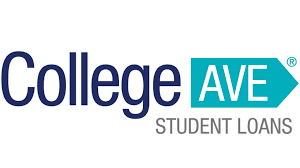Best International Student Loans of 2024


Stephanie Colestock
Banking Expert
Stephanie is a freelance writer and contributor with over a decade of experience in the personal finance field. While she covers a variety of topics, her expertise centers around loans, insurance, real estate, travel and retirement. Her work can be found on sites like Newsweek, TIME, MSN, Market Watch and USA Today, to name a few. She graduated from Baylor University and currently splits her time between Texas and the DC area.


Claire Dickey
Senior Editor
Claire is a senior editor at Newsweek focused on credit cards, loans and banking. Her top priority is providing unbiased, in-depth personal finance content to ensure readers are well-equipped with knowledge when making financial decisions.
Prior to Newsweek, Claire spent five years at Bankrate as a lead credit cards editor. You can find her jogging through Austin, TX, or playing tourist in her free time.
Updated April 25, 2024 at 2:28 pm
The majority of college students today rely on loans to help them pay for tuition, room and board and other educational expenses. When you’re attending school in your home country, you typically have a wide variety of loan options to choose from, including federal and private. But if you’re living in another country and attending school as an international student, your options can be a lot more limited.
Here’s a look at some of the best international student loans and how to find student loans for international students, whether you’re an American student studying abroad or moved to the U.S. to attend school.
Newsweek Vault’s loan experts evaluated multiple data points to help our readers make sense of their borrowing options across student loans and personal loans. To narrow down the best available offers, we weigh the product pros and cons across five core categories, including:
- Application process
- Eligibility requirements
- Interest rates
- Loan amounts (minimum and maximum)
- Repayment flexibility
- Best for Students Without a Co-signer: MPOWER Financing
- Best for Students With a Co-signer: Ascent Funding
- Best for U.S. Graduate Programs: Earnest
- Best for International Graduate Students: Prodigy Finance
- Best for Refinancing Your International Student Loans: Juno
- Best for International Students Authorized To Work in the U.S: College Ave
- Best International Student Loan With No Fees: SoFi
- Best for Comparing Multiple Options at Once: Credible
- Best Bank Loan for International Graduate Students: Citizens
Compare International Student Loans Now
5 Best International Student Loans of 2024
Best for Students Without a Co-signer

MPOWER Financing
Vault Verified
Why We Chose It
MPOWER Financing offers up to $100,000 in fixed-rate loans to international students attending one of over 400 U.S. and Canadian schools—and without the need for a creditworthy cosigner or collateral.
Pros
- No cosigner or collateral required
- Loans range from $2,001 to $100,000
- Available to undergraduate and graduate students
Cons
- Only available to students attending select schools in the U.S. and Canada
- No variable rate option
- Must be within two years of graduation or about to begin a one or two-year program
Best for Students With a Co-signer

Ascent Private Student Loan
on Credible’s website
Why We Chose It
For international students who have a willing cosigner, Ascent Funding can offer the cash necessary to fund your undergraduate, graduate or professional degree programs, with repayment terms as long as 20 years in some cases. Learn more with our Ascent student loans review.
Pros
- Available to undergraduate, graduate and professional program students
- Only half-time enrollment is required
- “1% Cash Back Graduation Reward” and autopay APR discounts (up to 1.00%) offered
Cons
- Creditworthy cosigner who lives in the U.S. is required
- Only available to foreign students attending school in the U.S.
- Students must have temporary resident status in the U.S. or Temporary Protected Status
Best for U.S. Graduate Programs

Earnest Private Student Loan
Vault Verified
Why We Chose It
If you’re an international student planning to pursue an MBA, JD/LLM or MS Engineering degree at select U.S. colleges and universities, an Earnest international student loan can give you access to as much as $250,000 in maximum lifetime funding. No cosigner is required for qualified students. Learn more with our Earnest student loans review.
Pros
- No cosigner required
- Borrow up to $250,000 in maximum lifetime funding
- Nine-month grace period after graduation
Cons
- Only select schools and graduate degree programs allowed
Best for International Graduate Students

Prodigy Finance
Vault Verified
Why We Chose It
With a Prodigy Finance loan, international graduate students can get repayment terms between seven and 20 years (plus up to a six-month grace period after graduation). There are eligible schools in 18 countries around the world, and no co-signer is required in order to secure a loan. Learn more with our Prodigy student loans review.
Pros
- Available to students studying at an eligible school in 19 different countries
- No cosigner or collateral required
- Repayment terms as long as 20 years
Cons
- No fixed-rate APR
- Only available to masters degree students
- Shorter grace period for part-time students
Best for Refinancing Your International Student Loans

Juno
Vault Verified
Why We Chose It
If you’re not a U.S. citizen, you may find it difficult to refinance your international student loans, which can have higher-than-average interest rates compared to domestic student loans. Juno’s collective bargaining power allows you to refinance those loans with a partner lender at a potentially lower rate and consolidate multiple balances into one, easy-to-manage account.
Pros
- Juno shops refinance deals on your behalf and finds the best possible rates for your situation
- Reduced interest rates, autopay discounts and cash bonuses available
- No cosigner necessary
Cons
- Only offered to international borrowers employed in the U.S., with an offer of employment in the U.S. or with other sufficient income
- If you didn’t graduate with an associate degree or higher from a Title IV school, you can’t refinance your educational debt
- Not available for bar loans or residency loans
Best for International Students Authorized To Work in the U.S

College Ave Student Loans
Vault Verified
Why We Chose It
If you’re an international student with a Social Security number—which you might qualify for if you’re authorized to work in the U.S.—and cosigner, you could borrow up to your college’s cost of attendance to fund your undergraduate or graduate studies. The lender offers repayment terms of up to 15 years on most of its loans, but you can select a term of up to 20 years if you’re an international graduate student pursuing a law or healthcare degree. Learn more with our College Ave student loans review.
Pros
- Borrow up to 100% of your school’s cost of attendance
- Flexible repayment terms up to 20 years
- Prequalification available
Cons
- Must have Social Security number
- Cosigner who lives in the U.S. required
- Late fees
Best for International Student Loans With No Fees

SoFi
Vault Verified
Why We Chose It
SoFi offers student loans to international and non-permanent residents with no fees and competitive rates. The lender can refinance international students who are attending an eligible school, according to a SoFi representative we spoke with. Learn more with our SoFi student loans review.
Pros
- No fees
- Broad range of repayment terms
- Refinance up to the full balance of your outstanding loans
Cons
- Must have green card
- Must be authorized to work in the U.S.
Best for Comparing Multiple Options at Once

Credible
on Credible’s website
Why We Chose It
If you’re looking for a way to compare multiple options at once, using Credible could be the perfect option. You or your cosigner can fill out an application to prequalify with one of the marketplace’s eight partner lenders. Learn more with our Credible student loans review.
Pros
- Compare multiple lenders at one time
- Option to prequalify
- None of Credible’s partners charge origination fees
Cons
- Loan amounts vary by lender
- Might have to research Credible’s partner lenders to see whether they offer loans to international students
Best Bank Loan for International Graduate Students

Citizens Bank
Vault Verified
Why We Chose It
Citizens Bank offers graduate student loans to international students with cosigners who live in the U.S. Applicants who qualify could get up to a 0.25% discount for autopay and a 0.25% discount if their cosigner has an existing eligible Citizens account. Plus, once you qualify for the loan, you could receive multi-year approval. Multi-year approval means your cosigner could potentially only have to agree to a hard credit check once and can request additional funds with just a soft credit check for future years. Read our Citizens Bank student loans review for more information.
Pros
- Possible multi-year approval
- Low fixed APR range compared to some other lenders
- Autopay and loyalty APR discounts
Cons
- Only three repayment terms available
- Must apply with a cosigner who is a U.S. citizen or permanent resident
- Lower maximum loan amount than some competitors
What Are International Student Loans?
International student loans are borrowed funds that can be used to pay for educational expenses such as tuition, fees, room and board, books, supplies and other necessary costs. These loans may be offered to students enrolled in undergraduate, graduate and professional degree programs.
Providing loans to non-citizens can be risky for lenders, which is why not all student loan companies offer funds to international students. Select lenders provide student loans to international students as long as they are able to meet certain criteria, such as attending an approved school, providing collateral or adding a qualified cosigner to the loan.
Who Qualifies as an International Student?
An international student is someone who is attending school outside of their home country. This may be an American student studying abroad or a foreign student from another country who is choosing to attend school in the United States. These students generally don’t have citizenship in the country where the school is located and may not be able to meet certain standard loan requirements. In the U.S., this might include having a Social Security number or established credit history.
How To Compare International Student Loan Lenders
When weighing your international student loan options, consider these factors.
- Option to prequalify. Lenders that offer this option allow you or your cosigner to check for potential offers without submitting a formal application. If you have a cosigner, prequalifying won’t affect their credit score.
- APR. Your student loan’s APR is crucial to understanding your overall borrowing costs since it considers your interest rate and any fees the student loan company charges. Selecting the lender that offers you the lowest APR could help you save thousands of dollars over the life of the loan.
- Eligibility requirements. Review the lender’s eligibility requirements to gauge your chances of qualifying for the loan. If a lender requires you to apply with a cosigner, ask whether they have to meet a minimum credit score requirement.
- Loan amounts. Maximum loan amounts vary by lender. While shopping for the option that best fits your needs, make sure the lender offers the amount you need to borrow to pay for your education expenses.
How To Get an International Student Loan
The process for getting an international student loan will vary depending on whether you’re an American student looking to study abroad or a foreign student planning to study in the United States. Since most of the lenders mentioned here are U.S.-based and offer loans to international students, here are the steps you’ll need to take if you’re a foreign student who plans to attend school in the U.S.
- Apply to a degree program. Before you can get approved to take out a loan for school, you’ll need to first get accepted into an eligible institution. This means that you’ll need to at least apply for the specific school and program before moving forward with funding options.
- Determine how much you need to borrow. Your educational costs will depend on the school you attend and whether or not you also want to include living expenses in your loan, such as room and board, meal plans, etc. Some lenders will have a set dollar amount limit but others may allow you to borrow up to 100% of your educational expenses.
- Ensure that you have any necessary student visas, etc. Before you’re approved for an international student loan, most lenders will want to verify that you have a valid student visa, green card or eligible documentation in place. You may also be asked to provide certain proof of identity, often in the form of a valid passport, so be sure to have that ready.
- Apply for an international student loan. Once you have everything in order, it’s time to formally apply for your student loan. You’ll be asked a number of questions regarding your identity, degree plans, contact information and more. Many lenders offer online preapproval in just a few minutes, while others may need to verify certain information before you’ll be given a loan answer.
- Sign your promissory note. After you’re approved for a loan and the lender has verified the information with your school, you’ll be asked to sign a promissory note. This signature indicates that you agree to the loan terms and will repay the debt as scheduled.
- Get funded: Your loan is approved, signed and complete. Now, the funds will be sent to your school and applied to your tuition and fees. If you also borrowed enough to cover living expenses, books, supplies, etc., your school will give you any overage via cash or check.
- Repay your loan as promised: Once you’ve graduated, dropped below half-time enrollment or reached whatever threshold your lender has for repayment, it’s time to start paying down your loan. Most lenders offer a grace period after graduation (often six months) before payment is required. After that, you’ll need to start making monthly payments according to the terms you chose when you took out the loan.
Frequently Asked Questions
Can You Get a Student Loan as an International Student?
International students can borrow money for educational expenses when studying in another country, whether it’s an American student studying abroad or a foreign student coming to the U.S. for undergraduate, graduate or professional school. Many lenders offer international student loans depending on the degree program and school you choose as well as whether you have a creditworthy cosigner.
How Much Can I Borrow With an International Student Loan?
Depending on the lender and your eligibility, you may be able to borrow up to 100% of your educational expenses with an international student loan. This can be enough to cover tuition, fees, room and board, meal plans, supplies and more. Some lenders set a limit on international loans, which typically range from $50,000 to $100,000.
Can International Students Get Student Loan Relief?
Student loan relief is typically available to federal student loan borrowers, so international students with private loans won’t qualify. If an international student borrower is having trouble making payments as scheduled, they may be able to request a loan forbearance or deferment from the lender—especially if there are extenuating circumstances.
What Is the Best Student Loan Company for International Students?
The best lender depends on your borrowing needs. To find the option that’s best for you, compare rates, fees, eligibility requirements and loan amounts from at least three to five financial institutions.
Can International Students Get Student Loans from a U.S. Bank?
Some U.S. banks like Citizens Bank offer student loans to eligible international students. Plus, you could also get an international student loan from other types of lenders, including credit unions and online lenders.
Is It Possible To Get an Intentional Student Loan Without a Cosigner?
Although most lenders will require you to have a cosigner as an international student, a few lenders won’t. However, the trade-off is that lenders that offer individual international loans often offer higher rates than those that require joint loan applications.
Newsweek writer Jerry Brown contributed to this post.
Student Loan Rate and Terms Disclosure From Credible: Rates displayed include Automatic Payment and Loyalty Discounts, where applicable. Note that such discounts do not apply while loans are in deferment. The lenders on the Credible.com platform offer fixed rates ranging from 3.45% - 17.99% APR and Variable interest rates from 4.50% - 17.99% APR. Variable rates will fluctuate over the term of the borrower's loan with changes in the Index rate. The Index will be either LIBOR or SOFR. Rates are subject to change at any time without notice. Your actual rate may be different from the rates advertised and/or shown above and will be based on factors such as the term of your loan, your financial history (including your cosigner’s (if any) financial history) and the degree you are in the process of achieving or have achieved. While not always the case, lower rates typically require creditworthy applicants with creditworthy co-signers, graduate degrees, and shorter repayment terms (terms vary by lender and can range from 5-20 years) and include Automatic Payment and Loyalty discounts, where applicable. Loyalty and Automatic Payment discount requirements as well as Lender terms and conditions will vary by lender and therefore, reading each lender’s disclosures is important. Additionally, lenders may have loan minimum and maximum requirements, degree requirements, educational institution requirements, citizenship and residency requirements as well as other lender-specific requirements. Lenders will conduct a hard credit pull when you submit your application. Hard credit pulls will have an impact on your credit score.
Editorial Disclosure: We may receive a commission from affiliate partner links included on our site. However, this does not impact our staffs’ opinions or assessments.

Stephanie Colestock
Banking Expert
Stephanie is a freelance writer and contributor with over a decade of experience in the personal finance field. While she covers a variety of topics, her expertise centers around loans, insurance, real estate, travel and retirement. Her work can be found on sites like Newsweek, TIME, MSN, Market Watch and USA Today, to name a few. She graduated from Baylor University and currently splits her time between Texas and the DC area.